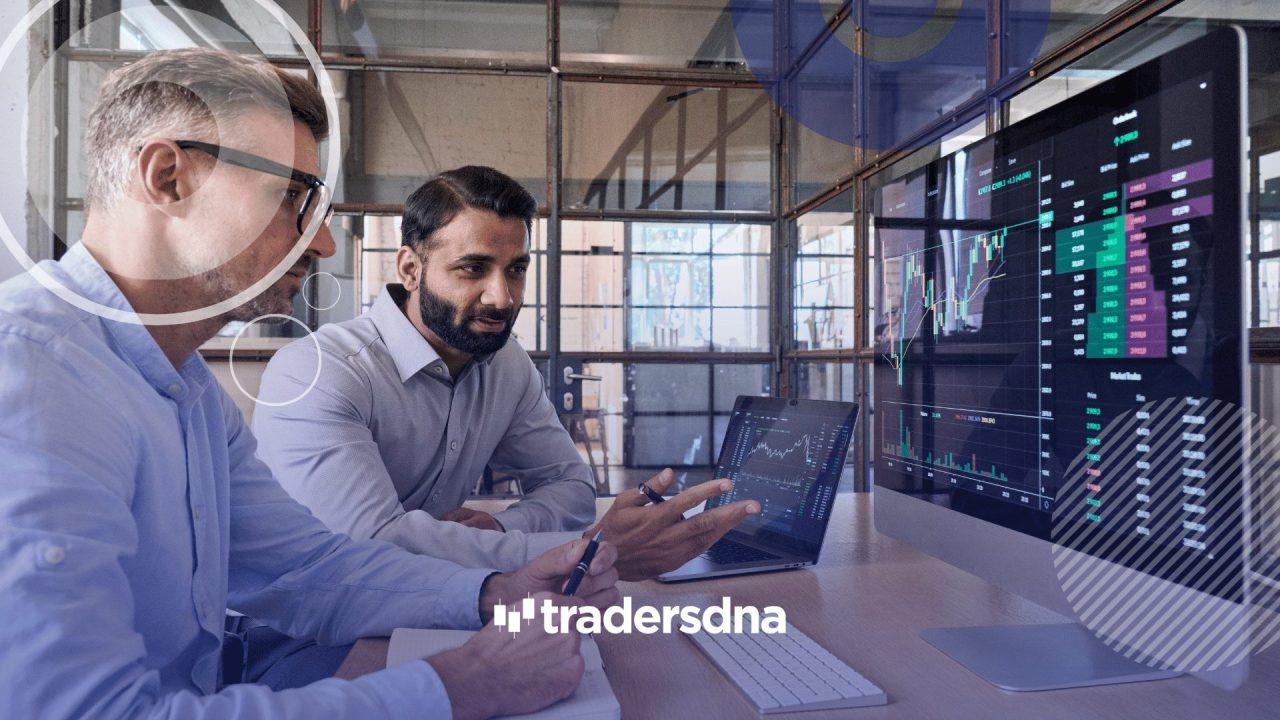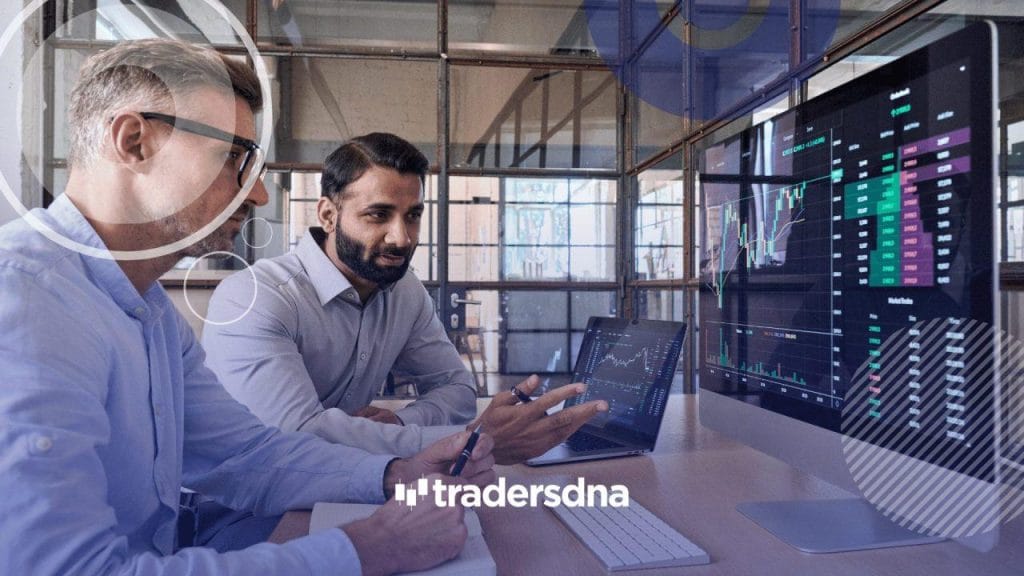With Bitcoin reaching 6-month highs and trading above £20,000.00, many investors may consider entering the Cryptocurrency market.
However, it’s essential to make intelligent and profitable investments.
Traders need to know the basics. Cryptocurrencies are digital or virtual currencies that use cryptography for security. They are decentralized and not controlled by any one entity, such as a government or bank. Cryptocurrencies use decentralized ledger technology, such as the blockchain, to record and verify transactions. This means no central authority is needed to process transactions. Cryptocurrencies can be used to purchase goods and services, as well as to send and receive payments. Cryptocurrencies are becoming a more widely accepted form of payment, but their value is still highly volatile and unpredictable.

The most common cryptocurrencies are:
1. Bitcoin, The original and most widely adopted cryptocurrency, with the highest market capitalization.
2. Ethereum: A platform for decentralized applications and smart contracts, second only to Bitcoin in market capitalization.
3. Ripple: A real-time gross settlement system, currency exchange, and remittance network.
4. Tether: A stablecoin pegged to the U.S. dollar, allowing for faster, cheaper, and more secure transactions.
5. Litecoin: A peer-to-peer cryptocurrency created as a fork of Bitcoin, with faster transaction speeds.
6. Bitcoin Cash: A hard fork of Bitcoin, with increased block size and improved scalability.
7. Binance Coin: The native token of Binance Exchange, used to pay fees, buy/sell cryptocurrencies, and receive discounts.
8. Cardano: A decentralized blockchain platform for creating and executing smart contracts and decentralized applications.
9. Polkadot: A blockchain platform that allows for the interoperability of different blockchains and decentralized applications.
10. Stellar: An open-source protocol for exchanging money, with built-in support for smart contracts and decentralized applications.
Experts from the Cryptocurrency education platform Cryptomaniaks.com have identified the top seven common mistakes that investors should avoid when trading in the Cryptocurrency market in 2023.
Not knowing the basics
Before investing in any Crypto asset, it’s essential to familiarize yourself with the basics of Crypto trading and the market.
This includes understanding the basics of trading blockchain technology, how Cryptocurrencies like Bitcoin work, the concept of circulating vs. total supply, and the impact of inflation on the market.
Additionally, by understanding the basics, investors can also understand how to use different trading platforms, exchanges, and wallets, which will be necessary to buy and sell their assets.
If you’d like a crash course on the basics, Cryptomaniaks has created a free mini-course on how to get started investing in bitcoin.
Not understanding the technology
Similar to understanding the basics of how to trade, it’s important to understand what you’re trading.
The technology behind different Cryptocurrencies is what makes them unique and valuable. Therefore, it’s crucial to have a solid understanding of the technology before investing in a coin.
This includes understanding the underlying blockchain, consensus algorithms, and other technical details of the project.
When researching and evaluating potential investments, it’s paramount to consider factors such as:
– The coin’s fundamentals
– The team behind the project
– The coin’s overall potential for growth.
Looking for coins with a clear use case and a strong community behind them is a great place to start.
Additionally, staying informed about the latest developments in the Crypto market is critical by following industry news and events and participating in online communities and forums.
Overtrading and making impulsive decisions.
It’s easy to get caught up in the market’s hype and make impulsive buying or selling decisions.
Overtrading refers to buying and selling assets too frequently, often based on short-term market fluctuations or hype rather than a well-thought-out investment strategy.
This can lead to financial losses, as investors may make impulsive decisions to buy or sell based on emotions rather than rational analysis.
It’s vital to develop a trading strategy and stick to it, even during market fluctuations.
To achieve this, investors should take a step back, evaluate their positions and assess if they align with their long-term strategy.
Investing more than you can afford to lose
Crypto trading is inherently risky, and the market can be volatile.
This can be particularly dangerous in the Crypto market, which is known for its volatility and high risk.
Prices of different Crypto assets can fluctuate rapidly, and there is always a risk that the value of an asset may decrease or become worthless.
Therefore, investing only what you can afford to lose is essential. Never invest your life savings or take on excessive debt to trade in the Crypto market.
Chasing cheap coins and focusing on short-term gains
“Did somebody say Dogecoin?”
It can be tempting to chase cheap coins to make a quick profit.
Many investors, especially new ones, may be attracted to the idea of buying a large amount of a cheap coin with the hope that its value will increase in the short term.
However, these coins may not have a solid fundamental value or long-term potential and may not be worth the investment.
Furthermore, focusing on short-term gains can lead to impulsive buying and selling decisions, resulting in overtrading and, ultimately, financial losses.
Instead, focus on researching the project’s technology, team, and potential for growth and understanding the research.
Not diversifying your portfolio
Diversifying your portfolio is important in any type of investment, including Cryptocurrency, because it helps to spread risk and minimize potential losses.
When you diversify your portfolio, you’re spreading your investments across different assets, sectors, and industries. This way, if one investment performs poorly, the others can offset the losses and minimize the impact on your overall portfolio.
For example, let’s say an investor has a portfolio heavily invested in technology companies.
If there is a recession in the technology industry, the investor’s portfolio will be heavily impacted.
However, suppose the investor diversifies their portfolio by including investments in other sectors such as healthcare, real estate, and energy. In that case, the impact of the recession in the technology industry will be less severe on the overall portfolio.
Over-diversifying your portfolio
You can have too much of a good thing. While diversification is important, it’s also important not to spread your investments too thin.
Over-diversifying can lead to a lack of focus and ultimately result in weaker returns.
When over-diversifying, investors may end up investing in assets that they need help understanding or spreading their investments across assets that are not related to each other, which may lead to a lack of a coherent investment strategy.
This can make monitoring and managing the portfolio challenging and lead to lower returns on investment.
A spokesperson for Cryptomaniaks.com commented: “By avoiding these common mistakes, investors can increase their chances of success in the Crypto market.
However, it’s important to remember that Crypto trading is inherently risky, and past performance is not indicative of future results.
Always conduct your research and invest only what you can afford to lose.”
This research was conducted by Cryptomaniaks. The Cryptocurrency and Blockchain education platform provides expert recommendations to help you explore the Crypto space confidently.
Tradersdna is a leading digital and social media platform for traders and investors. Tradersdna offers premiere resources for trading and investing education, digital resources for personal finance, market analysis and free trading guides. More about TradersDNA Features: What Does It Take to Become an Aggressive Trader? | Everything You Need to Know About White Label Trading Software | Advantages of Automated Forex Trading









